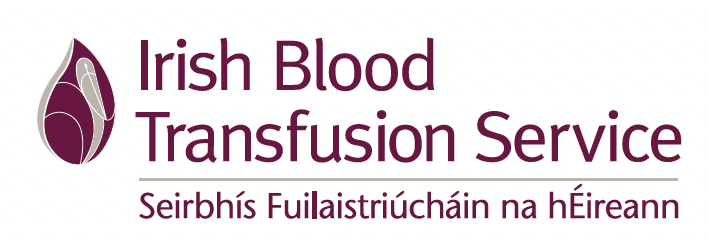The future of the Irish Blood Transfusion Service

The Irish Blood Transfusion Service’s (IBTS) Chief Executive, Orla O’Brien talks to eolas about the ongoing challenges posed by the pandemic, the organisation’s strategy, Connections That Count, published in 2021, and Research and Development Lead Allison Waters outlines the key elements of the first ever R&D strategy devised by the IBTS.
As the pandemic rolls on, the IBTS has continued to provide blood and blood products to the Irish healthcare system. This has been incredibly challenging, and we have been in real difficulty meeting hospital demand on occasion. We imported RhD blood from the NHSBT in June as ongoing restrictions and social distancing requirements on donation clinics made it increasingly harder to meet our collection targets. Many venues previously used to run clinics were too small to allow for adequate social distancing and some venues were no longer available to us because the hospitality industry was effectively dormant. This meant we were relying on the same cohort of donors to keep the blood supply going. In October, we initiated a targeted appeal to replenish the blood supply as we were in very real danger of having to advise hospitals to start cancelling elective surgery that may require blood support.
“Despite the Covid-19 crisis I was keen that we finalise our strategic plan and Connections That Count was approved by the Department of Health in May 2021,” says O’Brien. “This Strategy is an exciting development with a vision for the IBTS in five years time that will transform the organisation. Work commenced on implementing strategic initiatives in early 2021 and we will continue to deliver on our strategic objectives over the coming years.
“It has a strong emphasis on initiatives that will strengthen innovation and people development. One of the services the IBTS is focusing on is the re-establishment of the Irish Eye Bank, the project plan for this complex project was developed in consultation with healthcare partners and approved in Q3 2021. Delivering a project of this scale will take some time, however it is expected within the lifetime of this strategy, the IBTS will be in a position to launch the national eye bank for Ireland, facilitating a safe and sustainable supply of corneas procured in Ireland for use in cornea transplants.”
The National Donor Screening Laboratory in the IBTS undertook a benchmarking exercise with My Green Lab, an organisation that aims to introduce sustainability to the communities responsible for the world’s life-changing medical and technical innovations. The IBTS is committed to introducing sustainable best practice throughout the organisation and utilised the services of My Green Lab to commence work on this. On the basis of the benchmarking exercise, the NDSL introduced a pilot project to improve some of the practices in this area with the aim of rolling it out to other departments in 2022.
In developing Connections That Count, the majority of feedback from our donors was that they would like to have an online appointment system. Our donors donate not just their blood but also their time and so it’s important to us to make the donor experience as efficient as possible. We are tying this in with our sustainable objectives as we work towards a digitalised environment. We are aiming to remove the need for paper forms on our clinics by Q2 2022, donors will be able to use a tablet to complete the health and lifestyle questionnaire before progressing with their appointment. In addition, we aim to have an online appointment system available before the end of 2022, this will mean donors will be able to make appointments themselves either on their laptop or phone without the need to speak to one of our customer service agents. Of course, that option will still be available for those donors who prefer to use the telephone.
The IBTS is undergoing somewhat of a transformation, there is an emphasis on innovation, agility and improving the experience of our people and our customers. In 2021, an innovation working group was established in the IBTS and in 2022 it will be progressing an action plan with a series of initiatives aimed at embedding innovation in the organisation. The action plan is very much aligned to the Public Service Innovation Strategy, and we look forward to implementing innovation initiatives and building capacity for innovation, research, and development in the IBTS.
There is also a renewed focus on R&D so that the IBTS “can do its own research and development providing an Irish context on transfusion medicine,” according to Allison Waters.
“In April 2021, the IBTS published its first-ever dedicated research and development strategy outlining the role of research in maximising the ability of blood and tissue donation to improve the health of patients,” she explains. “The organisation is committed to providing the evidence-base from which to build future improvements to its blood and tissue services. Research engagement will be supported at all levels throughout the organisation, thereby capitalising on previously untapped expertise of personnel, and clinical and academic colleagues, and ultimately positioning the IBTS as a key research leader in the field of blood donation and transfusion.”
“Research engagement will be supported at all levels throughout the organisation, thereby capitalising on previously untapped expertise of personnel, and clinical and academic colleagues, and ultimately positioning the IBTS as a key research leader in the field of blood donation and transfusion.”
The research and development strategy is underpinned by three core objectives:
- To gain a deeper understanding into the dynamics of the donation process. Insights into the factors motivating and preventing people donating blood will drive improvements to blood collection policies, testing algorithms and clinical guidelines.
- To future-proof the service in relation to changing technologies, blood demands and blood component usage, thereby optimally serving all transfusion and transplant recipients. Specifically, the development of novel cellular solutions to disease management requires translation from the research benches to large-scale production using good manufacturing processes.
- To position the organisation as a key research leader in the field of transfusion medicine through participation in national and international networks, and through collaboration with clinical colleagues, international blood services and commercial partners for research endeavours and clinical trials.
The effective implementation of research best-practice, a clear research governance structure and a supportive research culture has begun the creation of a positive and innovative environment for all personnel engaging in research. Over the course of 2021, the IBTS have contributed to 10 peer-reviewed publications and presented their research findings at numerous international and national conferences. The newly formed R&D department also further developed its research profile through collaboration on six different international studies alongside international blood establishment partners.
In 2021, research investment was directed to supporting public health monitoring by investigating the progression of the SARS-CoV-2 epidemic in healthy donors. The SARS-CoV-2 antibody profile was investigated through each infectious wave and following the rollout of the vaccination programme. Furthermore, European funding supported the production high titre Covid convalescent plasma, which successfully enabled the production of plasma from Irish donors for the first-time in over two decades. Other research focused on profiling the red cell antigens in the Irish donor population providing baseline Irish blood group data. Investigations on blood components gained insights into the mechanisms impacting the function and activation of cold-stored platelets, as well as red blood cell oxygen saturation.
The focus for the immediate future is on effective research communication and building on the innovative research culture foundations laid throughout the past year. The team aims to design and launch a research, learning, and development website, targeted at clinical, scientific, and academic professionals. In addition, the IBTS will lead on a future-focused blood donation and haematology research symposium. Lastly, they will continue to build on their research publication strengths in epidemiology and component production.
W: www.giveblood.ie






